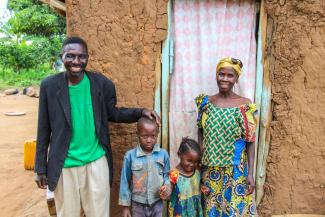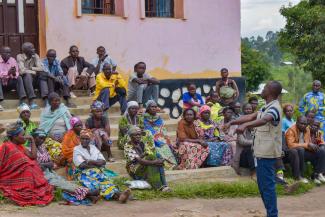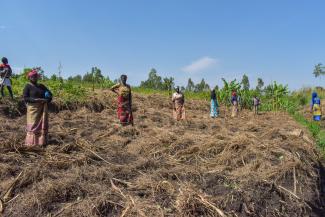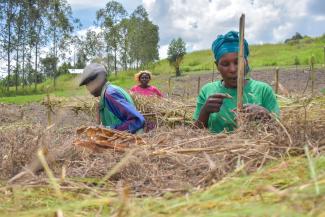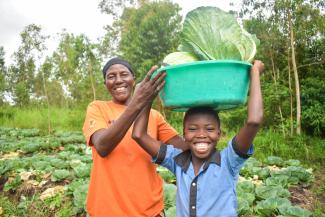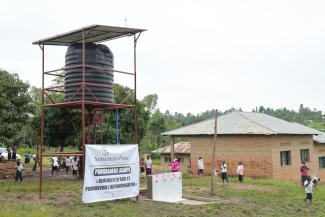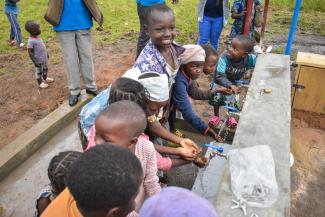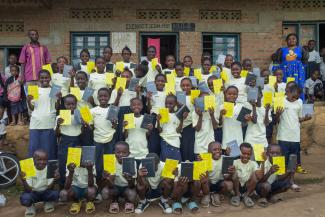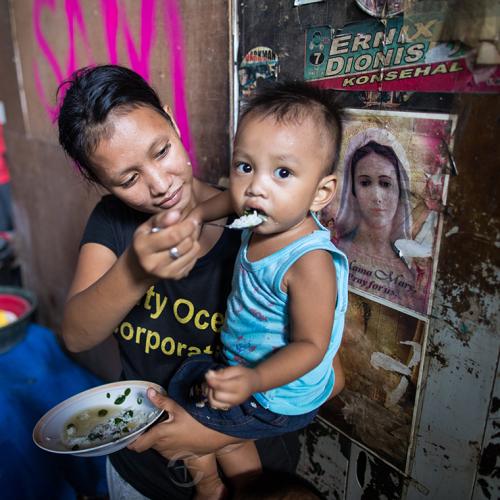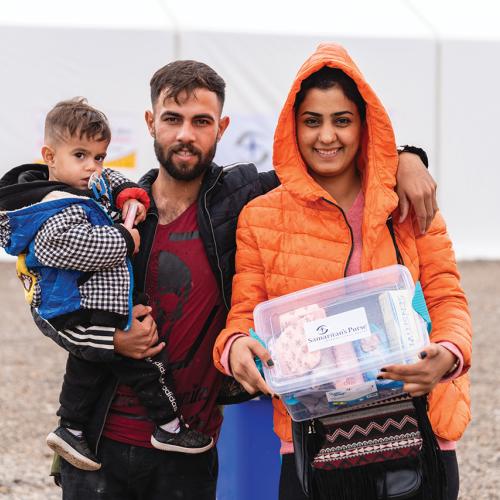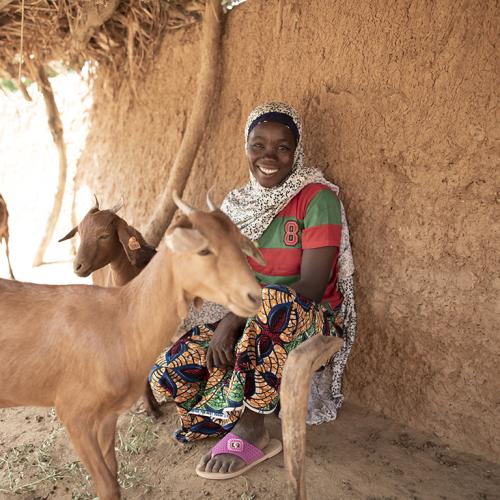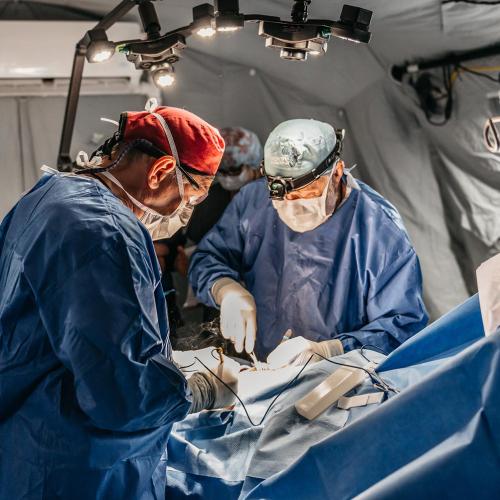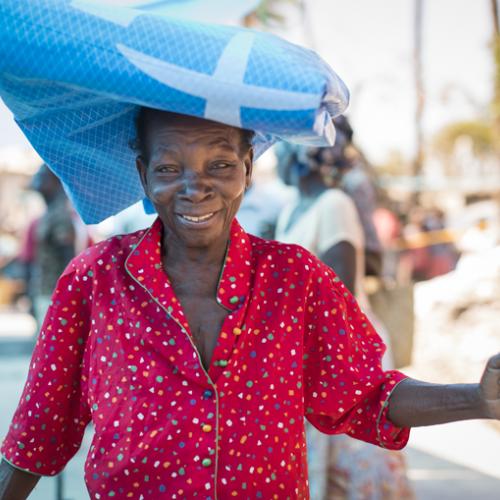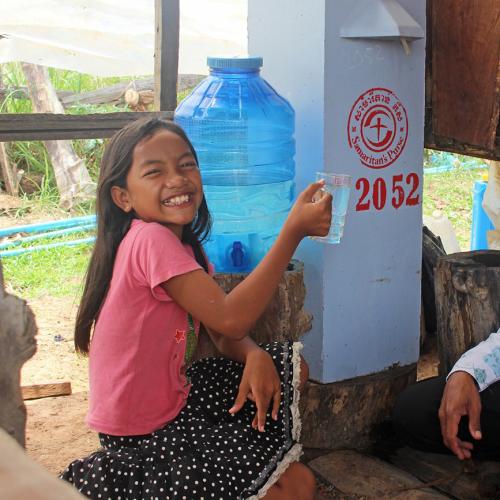Through the Agape Project livelihoods programme in Democratic Republic of the Congo, displaced families are rebuilding their lives on a firm foundation of hope in Jesus Christ.
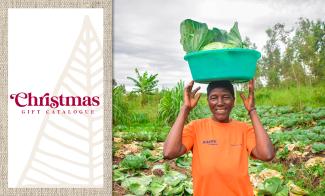
Seeds of Love and Hope
Jean Tisu was finally able to walk in peace as he strolled the rows of beautiful cabbages in his high rubber boots.
“The life of a displaced person due to war is not good at all,” Tisu said. “We were chased away from our homes. When we arrived here, we had a hard life.”
Jean and scores of others had fled more than a year ago from far away villages, some of them suddenly losing family and friends in ambushes enacted in the midst of their daily chores. Now they are still grieving as they try to restart their lives in camps near Bunia, the capital of Democratic Republic of Congo, far from the armed groups ravaging small communities.
Everything they had ever known has been upturned. This has been an ongoing hardship for many years in the west African country.
For the first time in a long time, as the Samaritan’s Purse Agape Project began working to meet needs, these families could enjoy the gentle breeze and the sounds of insects and life as they worked amid the rows of produce. Jean was able to focus on farming with his new-found skills. He picked out diseased leaves from the patch, as he was taught, in order to protect the rest of the crops from catching the same sickness.
He walked along layers of straw, a soil-preserving mulch that our teams helped them lay down in order to protect the precious soil from heat and sun exposure and that also fed the soil with nitrogen as the grasses break down.
“It was a very bad life before in the camps,” Jean said. “We had to leave our families to go find work and it wasn’t enough to provide food, water, and medicine. Many people were sick. We buried many people.”
Jean is the leader of a savings group as part of the Samaritan’s Purse Agape Project, a programme that provides livelihoods training and tools for displaced families. Participants began with a small infusion of cash and a small shared field for learning. They were taught to save, how to price and sell produce at the market, and, through our AVEC savings groups, were encouraged to place their money in a shared coffer for use in small business loans to buy fields and materials of their own.
AVEC, the French word for “with,” is the name of the savings programme that encourages the families to work with one another to help construct thriving lives together in their new setting far from home.
As our teams work hard to meet physical needs through the project, they’ve also been working through local churches to provide Biblical training, opportunities to hear the Gospel of Jesus Christ, and to create networks of believers who can help war-weary families address the trauma they’ve experienced.
Lives Changed Through the Love of God
“My husband and little brother died during the war,” said Eduige Dheve, who recently fled to Bunia with her eight children. “They were going to look for food in the fields and the army surrounded them. I escaped with the children.”
Through Agape, Eduige and her family can earn money, lend it at interest, and pay for clothes and schooling for her children. The prayer is that when or if they return home, they will have more resources and firmer foundations than when they fled.
“My husband used to do this work. Back home the soil was fertile, so he would plant and I would water. We grew cabbage and spinach and we didn’t use fertiliser. He would just put the seed down,” she said. “Now I’m learning about fertiliser and how to do composting.”
Most important though is that Eduige is experiencing hope for the first time in a long time. Besides the farming and economic skills she is learning, Agape is teaching her about Jesus Christ through His Word and that she can rely on Him for her needs.
“A lot of troubles disappear when I abide in the Word of God,” she said. “It has really helped me change my thoughts. I have a lot of thoughts. My worries are frequent. Every day I ask myself, ‘what can I do?’ but when I think about what the Bible says, my heart lightens. If it wasn’t for the love of God, we would still be living in mud. Everything, the Word of God, the AVEC group, and these fields, and now I am filled with joy always.”
An Abundant Harvest
In August of last year, the Agape groups grew seeds into seedlings, planted them in the shared field, and, by the time November arrived, they were gathering their harvests from the ground. They fed their families and took the remaining produce to market.
With the proceeds, they will pay for expenses, invest in their own home gardens, and also invest a percentage back into the savings coffer.
“They were able to harvest hundreds of kilos from each of the demonstration fields,” said Musungufu Jean Lambert, a Programme Manager for the Agape Programme. “This is also really a community development project, so we are preaching the Gospel, sharing the Good News through sports activities with the children and through films. They have been traumatised by the effects of war. They lost their villages and their families, but now today they can smile because they have hope.”
In the same week that the savings groups celebrated a plentiful harvest of cabbages, they drank clean water—an answer to a months-long prayer for a water point to be constructed in the camps.
“They have crops now that they have cultivated, and they are now harvesting. They have seen good results,” Musungfu said. “And now they have clean water to drink. This is why we are here. This is a project of love.”
